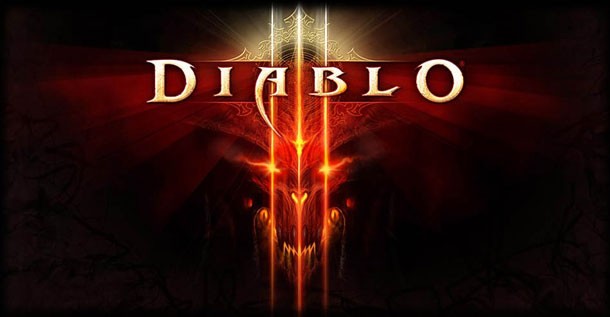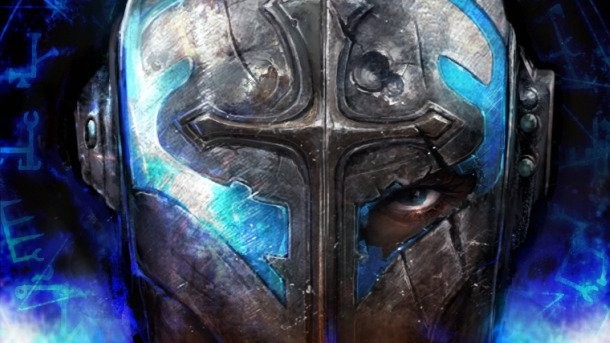Please support Game Informer. Print magazine subscriptions are less than $2 per issue
Connection Failed: Troubled Online Launches

Games are more connected than ever. Many of the world's most popular games are now exclusively online, and an increasing number blur the line between single- and multiplayer. Times are changing, but one thing has remained constant: Launching a large-scale online game is a difficult proposition - one the industry still struggles with. In this rundown of high-profile botched online launches we discuss why problems like these continue to happen.

Diablo III (Blizzard, 2012)
Diablo III was one of the most anticipated games in PC history. It had been 12 years since the launch of the classic Diablo II, so needless to say Blizzard fans were excited for a new hack n' slash adventure.
In many ways, Diablo III stayed close to the traditions of the series; it was hardly a bold reinvention of the franchise. However, Blizzard did make a controversial decision, one that would come back to haunt the studio. Diablo III required players to be logged into the their online Battle.net accounts at all times - even if they only wanted to play solo.
Sadly, this proved to be difficult during launch. Many players found themselves unable to log on to Blizzard's servers. Normally, this alone would have caused an outcry from players who wanted to play with friends online, but the situation was now compounded by the fact that it effectively barred everyone from playing in any capacity. Though it was eventually solved, the launch - and the controversial (and later discontinued) real-money auction house - left bad taste in the mouths of many fans. Worse, it cast a shadow on what was otherwise a tremendous game.

SimCity (Electronic Arts, 2013)
If measured by online outcry and general anger, EA and Maxis' launch of SimCity earlier this year was perhaps the ugliest online launch ever. It's unfortunate, because the core idea behind the game was an interesting evolution of Maxis' classic simulation gameplay. Obviously, competitive (or traditional cooperative) multiplayer made little sense in SimCity, so the studio conceived of a way for players to effectively play alone together.
The idea was that your friends (through EA's Origin service) would populate your region with their cities. This would allow for specialization in urban planning; one city might be based around a large university while drawing students from (and sending workers to) a neighboring industrial town. It's not a bad idea, but it also came along with a mandate that players were required to connect to EA's servers to play the game, even in single-player mode. This decision would prove disastrous.
From the minute it launched, EA's servers barely functioned. Instead of just locking out multiplayer, it barred players from the entire game. As the outrage grew, EA defended the decision, saying that the game used cloud computing to do in-game calculations. However, online modders soon disproved this by posting a video of a hacked version being played offline - ruining EA's credibility with fans.
The outages persisted for a few weeks, forcing EA to remove features like cheetah mode in order to get the game to work. The result was that what should have been a new chapter in the SimCity franchise is now seen as a black eye.

Hellgate London (Electronic Arts, 2007)
Flagship Studios' Hellgate London, helmed by ex-Blizzard producer Bill Roper (Diablo II, Starcraft), was an ambitious project that aimed to meld the MMO genre with elements of Diablo and the fast pace of a modern shooter. It won mixed reviews, but many praised its best elements, especially the combat, as truly excellent. Sadly, a poor launch doomed the project to failure.
In keeping with the game's horror theme, it launched on Halloween of 2007. From the start, many players (some of whom had paid a hefty $149 lifetime subscription fee) experienced trouble logging on and crashing servers. However, the anger created by these relatively routine problems paled comparison to the furor online when many users found they had been double-charged for their subscriptions - and some were still not recognized by the game as subscribers.
In Asia, the problems were severe enough that a patch was released for the game in November. However, this fix also erased all the progress, items, and levels that players had earned so far.
It was downhill from there. Hellgate's servers were officially shut down in 2009. However, in 2011, it was resurrected as a free-to-play game in Korea.

Half-Life 2 (Valve, 2004)
It's funny how time changes our perceptions. Today, Half-Life 2 is one of the most beloved games of all time, and any news of potential sequel sets the Internet ablaze. Steam is considered to be one of the great innovations in the past decade of gaming, and is credited with both saving PC gaming and the beginning of an industry-wide move away from packaged goods.
However, Half-Life 2's launch was a portent of things to come. For the first time, Valve required gamers to authenticate the game through the Steam service. A Valve press statement at the time read: "All versions require an Internet connection upon installation. This is for authentication/anti-piracy purposes. Once this has been completed, the owner of either the retail or the Steam version can play Half-Life 2 single player in offline mode."
Unsurprisingly, the huge sales of the game in its first week overwhelmed the Steam service, locking out many from playing the game - even copies purchased as a boxed copy at retail. Gamers were extremely frustrated. They might have been even more annoyed if they knew that these type of requirements would become more common in the coming years.

Grand Theft Auto Online (Rockstar Games, 2013)
The most recent of our examples, Rockstar's Grand Theft Auto Online, being the first really ambitious attempt to create a persistent GTA online universe, was the subject of much anticipation. Given that the company was doing something extremely ambitious that it hadn't attempted before, there were bound to be problems. To its credit, Rockstar admitted as much prior to the launch of GTA Online: "The first couple of weeks we expect to be heavily focused on tuning the experience as it goes from internal testing to the reality of being played by tons of people in the real world so that all the usual teething problems for an online game are overcome. We hope it will all run incredibly smoothly, but please bear with us if it doesn't, and help us fix any and all problems!"
This statement proved to be prophetic. When GTA Online launched on October 1, the litany of complaints were familiar: problems logging on to servers, some players experiencing bugs which resulted in lost cash, cars, or progress.
To its credit, Rockstar, which had clearly anticipated the situation, acted quickly and released patches to attempt to fix the issues in the game's early weeks. While it's not quite perfect yet, thing have gotten better. To help placate its fans, Rockstar also announced a "stimulus package" of $500,000 of in-game cash to players (although this was delayed later).

Why It Happens and What Can Be Done
While these are some of the most high-profile examples, problems with online launches have existed since there were online games that required servers. In researching this article, I saw references to the troubles with the launch of Ultima IX: Ascension in 1999. Our editor-in-chief, Andy McNamara, recalled to me taking a vacation in 2001 to play the EverQuest: The Shadows of Luclin expansion, and "looking at a blank computer screen for a week."
In many ways, it appears that - for all the advancements in video games - we haven't made much progress in being able to successfully launch an ambitious online game.
As to why this keeps happening, the reasons are both complex and simple. Simply, it's really hard to do - and I don't mean to sound glib. For one, you've got to account for all the difficulties getting writing solid network code and getting it to work with a variety of different levels of PC hardware or now-aged consoles like the PS3 and Xbox 360.
Then there's the matter of servers. It's a tremendously expensive part of bringing a game to market, especially since very few games can command a monthly subscription fee like World of Warcraft. Publishers and developers have to attempt to guess how many servers they'll need, based on presumed demand. While pre-orders and other metrics can help, it's an inexact science at best. Blizzard president Mike Morhaine admitted as much in a statement apologizing to fans for the problems surrounding the launch of Diablo III:
"The launch week of Diablo III was memorable for many reasons -- some positive, and some not so positive. We were thrilled that Diablo III had the biggest PC-game launch ever, surpassing the lifetime sales of Cataclysm (the previous record holder for biggest PC-game launch) in a matter of weeks. We've been floored by the response.
"However, the launch had many challenges as well. It has always been difficult to forecast how many players we will have. With World of Warcraft, it was a challenge to handle the immediate demand when we launched back in 2004, and that was just in North America. We eventually expanded to other regions and reached nearly 5 million players by the end of the first year, and there were a lot of growing pains with that. However, we've never gone from 0 to more than 6 million players across multiple continents within a few days with a brand-new game. For Diablo III, we looked at historical sales for Blizzard games and other top-selling PC games and watched preorder numbers. We even upped our estimates to ensure we had additional capacity, or so we thought. In the end, it just wasn't enough, and that is something we will work hard to conquer for future releases."
Obviously, private and public betas can help sort out problems prior to launch, but it's nearly impossible to simulate the crush of millions of gamers hitting the servers at once on launch day. Grand Theft Auto V sold over 11 million copies on September 17. By the time GTA Online (which was free to all who purchased the game) launched, the tally stood at over 17 million. If even half of those consumers tried to log on during the game's first 24 hours, that's over 8 million users. How could those circumstances be replicated by a beta?
It's likely that these launch-day online problems will continue, but there are some rays of hope. One, let's hope the scandal surrounding SimCity has finally convinced companies that locking gamers out of single-player if they are unable to log-in to the game's servers is a bad idea. Microsoft certainly learned the hard way when it was forced to reverse its "always on" policies for the Xbox One earlier this year. While there are many interesting features that can be implemented with an always-on game, it's important that gamers are given at least a bare-bones offline option for single-player.
Ironically, Microsoft is also doing its part to help ensure that Xbox One online experience are better and more stable, by offering the use of its own dedicated servers to all Xbox One games. This should - hopefully - make online games on the console more stable and take some of the server burden off of publishers and developers. It will also mean that multiplayer games won't have to be "hosted" on one player's console, reducing lag and ensuring that a match won't end if that player drops his or her connection.
Still, if there's one thing that history has shown, it's that it's hard to anticipate what challenges lie ahead. As technology improves, so does the ambition and scale of the games we play. Even as game companies work on solving today's online headaches, tomorrow's problems lie in wait.










